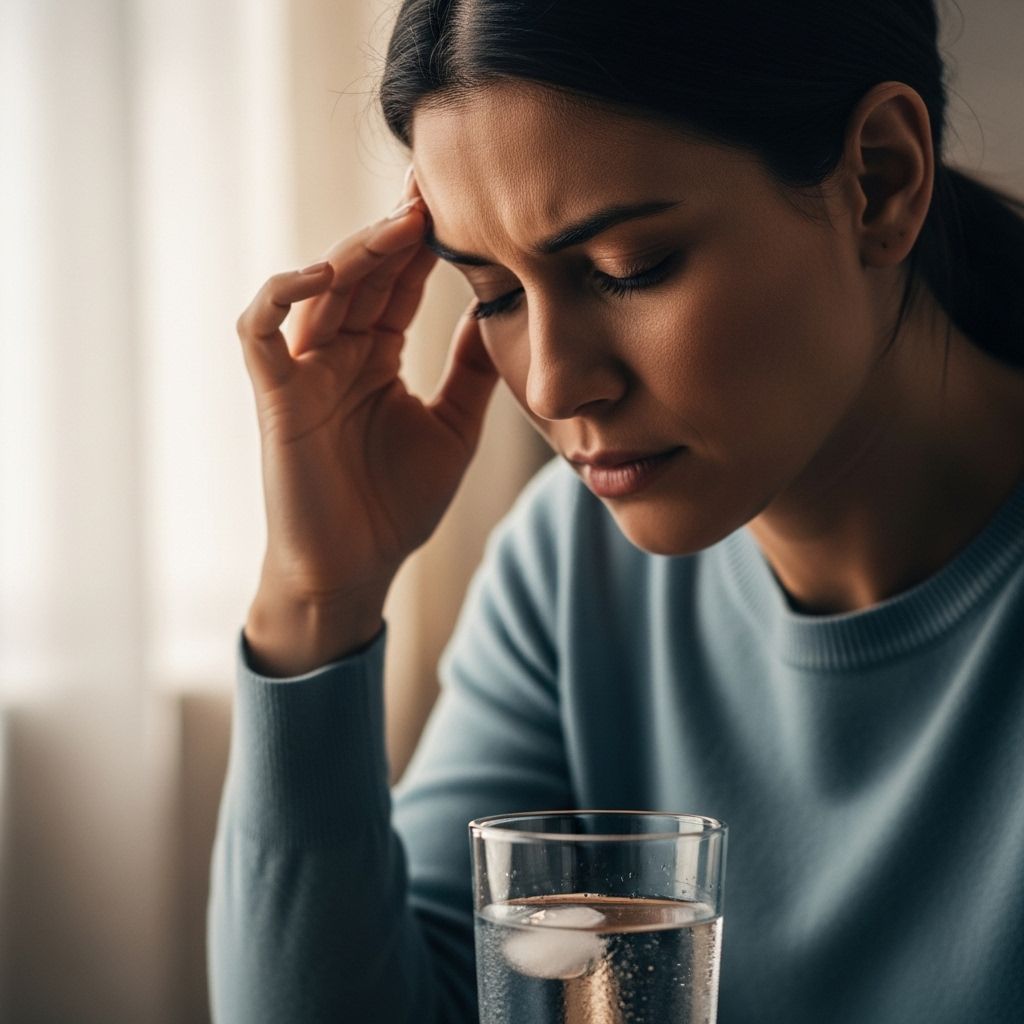Dehydration and Sudden Severe Headaches: Understanding the Link
Maintaining steady fluid balance helps prevent sudden bouts of intense head pressure.

Dehydration, a condition where the body loses more fluids than it takes in, can lead to a variety of symptoms, including headaches. These dehydration headaches can range from mild to severe and are often accompanied by other symptoms of dehydration. Understanding how dehydration causes headaches is crucial for effective management and prevention. In this article, we will delve into the causes, symptoms, treatment, and prevention of dehydration headaches.
Table of Contents
- Causes of Dehydration Headaches
- Symptoms of Dehydration Headaches
- Treatment for Dehydration Headaches
- Prevention of Dehydration Headaches
- Frequently Asked Questions (FAQs)
Causes of Dehydration Headaches
Dehydration occurs when the body loses more water than it consumes. This imbalance can lead to dehydration headaches due to several factors:
- Fluid and Electrolyte Imbalance: The body requires a balance of fluids and electrolytes to function properly. When this balance is disrupted, headaches can occur due to the brain temporarily shrinking from fluid loss, causing it to pull away from the skull and induce pain.
- Common Causes of Fluid Loss:
- Diarrhea and Vomiting
- Excessive Sweating due to Exercise or Heat
- Fever
- Excessive Urination (e.g., diabetes)
- Certain Medications
- Medications That Can Cause Dehydration:
- Laxatives
- Diuretics (e.g., furosemide)
- Certain Diabetes Medications (e.g., canagliflozin)
- Headache Medications Containing Caffeine
Symptoms of Dehydration Headaches
Dehydration headaches can manifest differently for each individual, but common characteristics include:
- Pain Location and Type: Dehydration headaches can be dull or intense and may occur at the front, back, sides, or all over the head. They are often not accompanied by facial pain or neck stiffness.
- Other Dehydration Symptoms:
- Extreme Thirst
- Reduced Urination
- Dark-Colored Urine
- Confusion
- Dizziness
- Fatigue
- Dry, Sticky Mouth
- Loss of Skin Elasticity
- Low Blood Pressure
- Increased Heart Rate
- Serious cases may include sunken eyes, fever, delirium, unconsciousness, and shriveled skin.
Treatment for Dehydration Headaches
Treatment for dehydration headaches typically involves rehydration and addressing any underlying causes:
- Rehydration: Drinking water or other hydrating fluids is often sufficient to alleviate dehydration headaches. Electrolyte-rich beverages can also be beneficial.
- Addressing Underlying Causes:
- Discontinue or adjust medications that may be causing dehydration.
- Manage conditions like fever or excessive sweating with appropriate measures.
- Rest and Non-Steroidal Anti-Inflammatory Drugs (NSAIDs): Rest and over-the-counter NSAIDs can help alleviate headache pain if water alone is insufficient.
Prevention of Dehydration Headaches
Preventing dehydration headaches involves maintaining adequate hydration and avoiding factors that lead to dehydration:
- Hydration Practices:
- Drink plenty of water throughout the day, especially during hot weather or physical activity.
- Consume fluid-rich foods like fruits and vegetables.
- Managing Fluid Loss:
- Avoid excessive alcohol consumption.
- Monitor and manage conditions that lead to excessive urination or sweating.
- Medication Management:
- Consult with a healthcare provider about medications that may cause dehydration.
- Follow the recommended dosage and usage instructions.
Frequently Asked Questions (FAQs)
Q: How quickly can dehydration headaches be relieved?
A: Dehydration headaches can often be relieved within a few hours of rehydration, but the speed of relief can depend on the severity of dehydration and individual factors.
Q: Can dehydration trigger migraines?
A: Yes, dehydration can be a trigger for migraine episodes, especially if the individual is prone to migraines. Ensuring adequate hydration is important for managing migraines.
Q: Are dehydration headaches a sign of something serious?
A: While dehydration headaches themselves are typically not serious, they can be a symptom of significant dehydration, which can lead to severe complications if not addressed promptly.
Understanding the link between dehydration and headaches is key to effective management and prevention. By recognizing the causes, symptoms, and treatment options, individuals can take proactive steps to avoid dehydration headaches and maintain overall health.
References
- https://www.medicalnewstoday.com/articles/317511
- https://www.southsidepainspecialists.com/is-dehydration-the-cause-of-your-headaches/
- https://sesamecare.com/blog/dehydration-headache-signs-treatment-prevention
- https://www.healthline.com/health/dehydration-headache
- https://www.health.harvard.edu/diseases-and-conditions/can-dehydration-cause-headaches
- https://pmc.ncbi.nlm.nih.gov/articles/PMC8280611/
- https://my.clevelandclinic.org/health/diseases/9013-dehydration
- https://www.goodrx.com/conditions/headaches/what-does-a-dehydration-headache-feel-like
- https://www.afcurgentcare.com/blog/dehydration-headache/
Read full bio of medha deb












